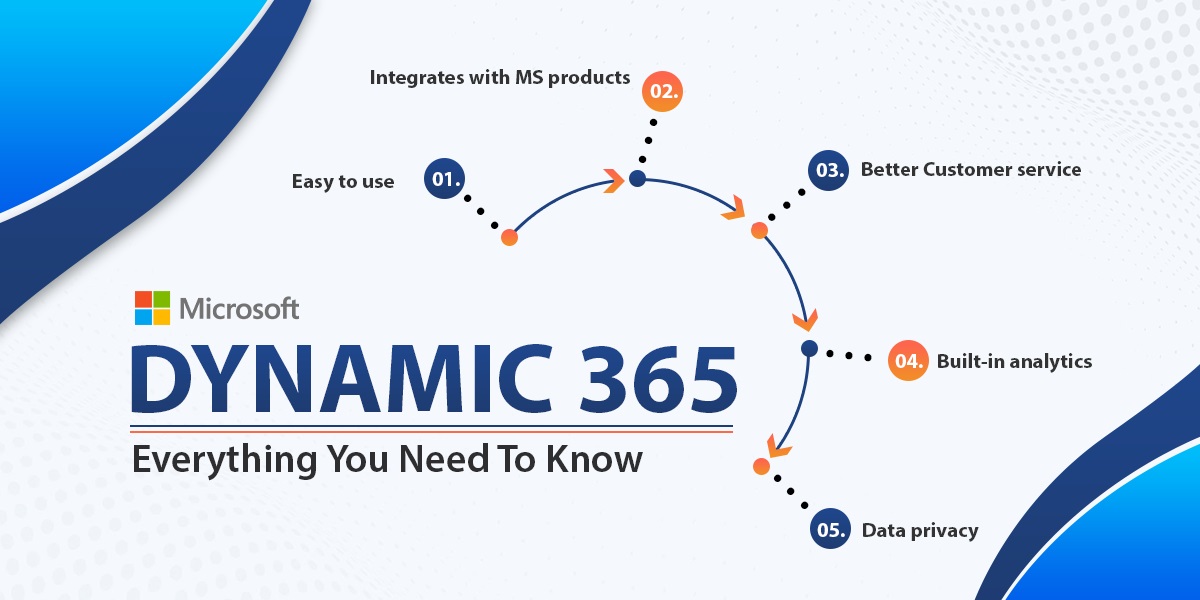
In this era of cut-throat competition, organizations need to keep pace with the rapidly changing market requirements. When we use disparate systems to manage business, keeping up with rapidly changing business requirements becomes a challenge due to data silos that are created by the use of disparate systems. To address these challenges, organizations need a cloud ERP solution. Among some reputed ERP vendors, Microsoft has gained a top position because of its award-winning business management suite i.e. Dynamics 365.
What is Microsoft Dynamics 365?
Dynamics 365 is an intelligent suite of business applications that includes different components of customer relationship management (CRM), enterprise resource planning (ERP), productivity and artificial intelligence tools. By bringing your corporate data on the centralized database, Dynamics 365 eliminates data silos while business intelligence supports well-informed decision making. Leveraging the “common data model” approach, customers can not only integrate legacy Microsoft applications but also any other applications.
Dynamics 365 Modules & Applications
Dynamics 365 Sales: It is a closed based customer relationship management solution that allows sales teams to close more sales deals quickly. Dynamics 365 for Sales covers all steps of a sales pipeline, delivers real-time visibility into customer needs, and streamlines processes and coach sellers.
Dynamics 365 Marketing: Designed to deliver more personalized customer experience, Dynamics 365 for Marketing leverages business intelligence to identify the best leads and recommendations. By collecting customer data collected from all your available sources, Dynamics 365 for Marketing brings a whole set of strategies to action to make your reach to the segment.
Dynamics 365 Customer Service: It is designed to deliver seamless experiences across all channels, including conversational AI, live interaction, and self-service solutions. Built-in intelligence, unified routing based on rules and prioritization, allows you to resolve customer issues faster. Support for cross-team collaboration helps your service team to deliver seamless customer experiences.
Dynamics 365 Finance: It is designed to maximize your financial visibility with the help of real-time reporting, embedded analytics, and AI insights. Out of box budgeting and project management capabilities allows you to deliver projects on time and within budget. You can improve your business health by minimizing costs and optimizing spending across business geographies leveraging process automation, budget control, and financial intelligence, planning, and analysis.
Dynamics 365 Supply Chain: It allows you to create a digital supply chain by unifying disparate data sources to improve multi-tier supplier collaboration. Built-in intelligence and real-time visibility into stocks ensures on time fulfillment to boost profitability while eliminating stockouts. Leveraging emerging technologies like predictive intelligence, internet of things (IoT), and mixed reality help you to build agile and sustainable manufacturing processes that can easily embrace new business models.
Dynamics 365 Commerce: Designed to cater customers’ changing purchasing needs, Dynamics 365 for ecommerce can be used to develop B2C and B2B solutions that allow you to engage customers on channels preferred by them. By connecting front-end with back-office operations, Dynamics 365 ecommerce helps maximize stock investment and optimize business practices.
As you’re now aware of different apps in Dynamics 365, you need to understand that it is critical for your business. However, the question arises how can you ensure that Dynamics 365 applications are aligned with your business objectives.
The only way to do this is Dynamics 365 testing. Whenever you change an existing business process, implement a new process, or integrate your Dynamic 365 application with some productivity tool, you need testing. Testing ensures business continuity and keeps business risks at bay.
Since Dynamics 365 is a complex application and receives two biannual updates, manual testing isn’t considered as a viable solution. You need to incorporate test automation solutions like Opkey to minimize burden on business users. Test automation solutions not only saves their time but also ensure adequate risk coverage.